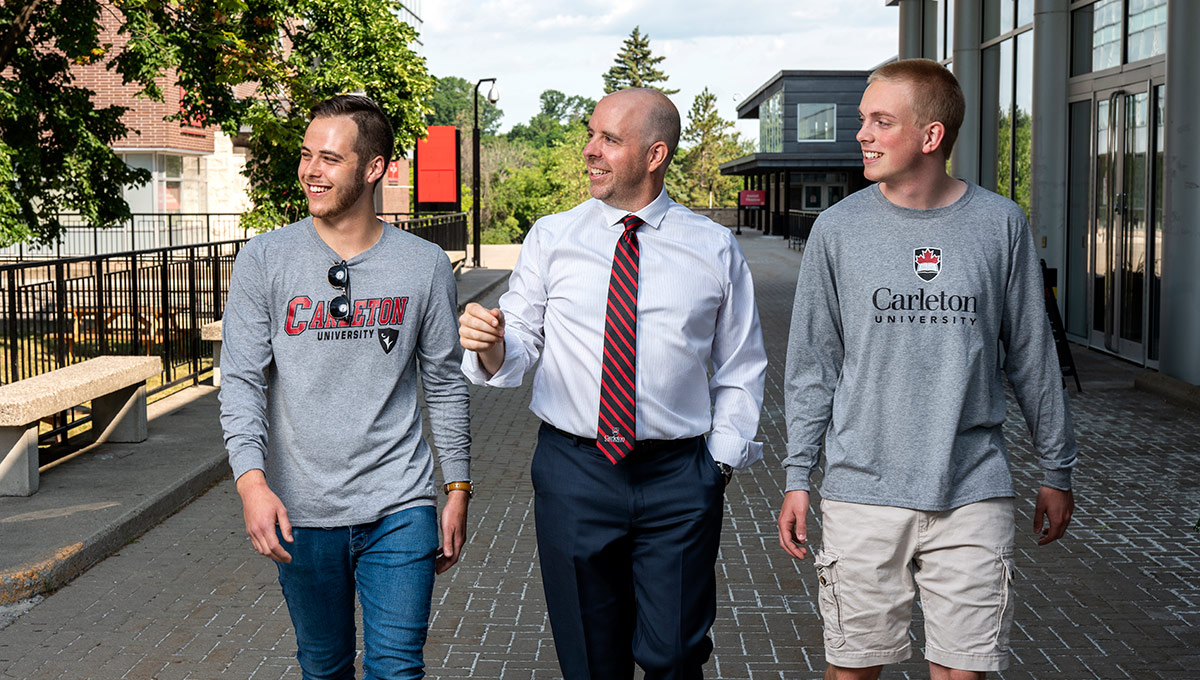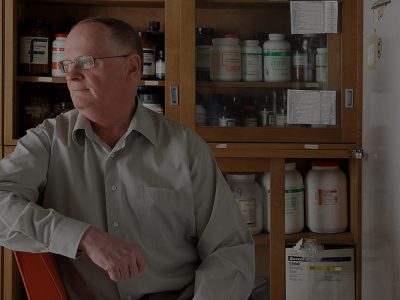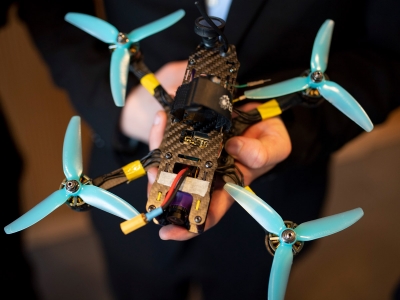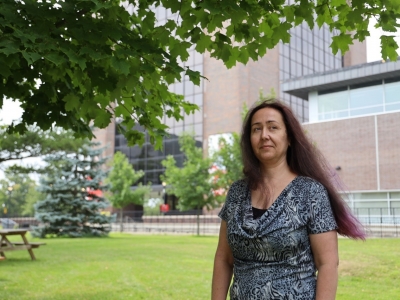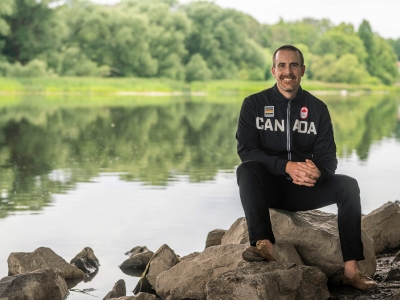By Dan Rubinstein
Photos by Chris Roussakis
On July 1, Benoit-Antoine Bacon began his five-year term as the 15th President and Vice-Chancellor of Carleton University. Bacon brings a depth of experience to the role, having previously served as Provost and Vice-Principal (Academic) at Queen’s University and Provost and Vice-President (Academic Affairs) at Concordia University, as well as Dean of Arts and Science and Chief Negotiator for the association of professors at Bishop’s University. He completed his PhD at the University of Montreal, in his hometown, studying the neurophysiology of visual perception. Bacon’s work in neuroscience gives him “under-the-hood” insight into the inner workings of the human brain and informs his approach to leadership. “It is so important,” he says, “to see reality as it really is, and not the way it should be or the way you would wish it to be. Only on that basis can you start to bring about positive and lasting change.”
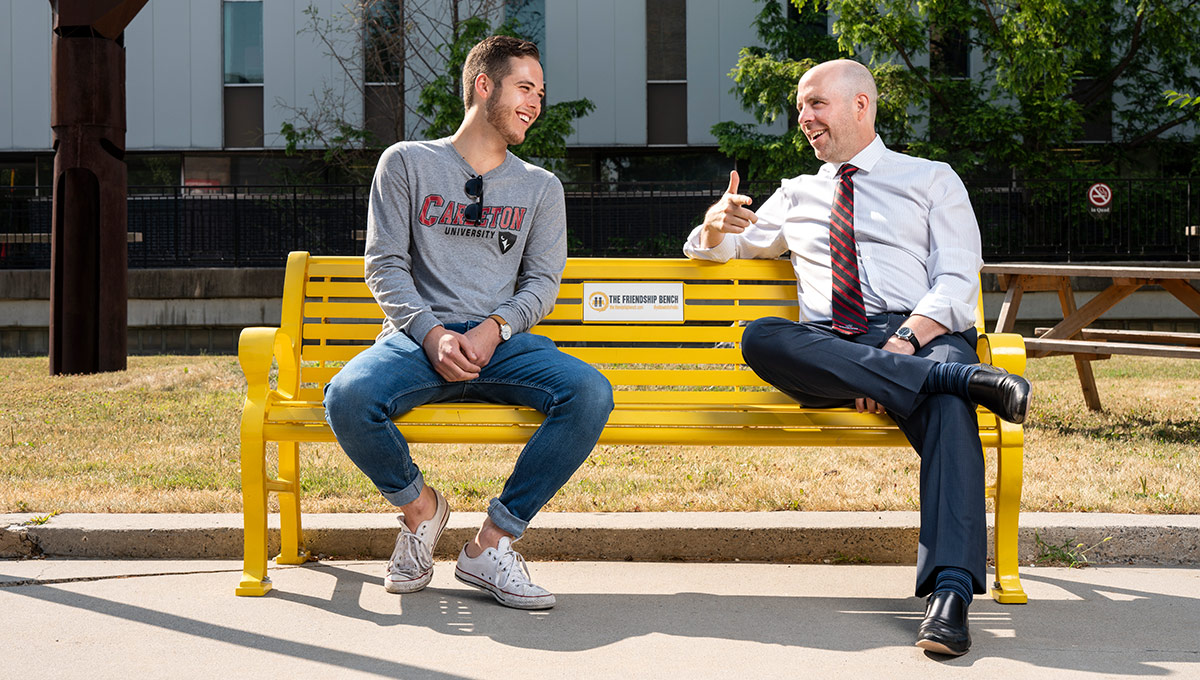
What are your first impressions of Carleton, the campus and the culture?
It’s a beautiful campus. Until now, I hadn’t had the chance to walk along the canal and the river to feel their power and beauty. These things matter — places have power. Carleton gets the balance between the crazy bustle of a downtown campus and the more contemplative feel of a liberal arts college in a small town. You have energy, you have action, you have vibrancy, but you also have space to think.
It feels to me like there’s a realness to the campus as well. There’s a community feel, for sure, but a community where you have space to be yourself. It doesn’t feel like a community that would pressure you to conform. I’ve been talking to people on campus and the same values about Carleton come up repeatedly, and these are values that resonate with me: resilience, purpose, sense of community, caring. Everyone I’ve met has been quick to offer help. They’ve been warm and welcoming, but at the same time, respectful of the need for a newcomer to take things one step at a time and to make up my own mind.
What about the opportunity to serve as president at Carleton attracted you?
It’s a combination of values and possibilities. The chance to join a university that has such a solid foundation, strong purpose and also possibilities to soar … I couldn’t resist exploring it. I wasn’t really looking for a job; I had a good job at Queen’s. But I am convinced that Carleton is the kind of university that’s really going to thrive from now into the middle of the 21st century — it’s of considerable size without being overly large, it’s young enough to have flexibility and the courage to try new things, it cares deeply about students, it wants to do research that matters, and it’s connected locally but has international ambitions. That was irresistible.
What we want to do exactly with these opportunities is something we’re going to have to figure out together as a community, both informally over the course of the year and in time more formally as part of a strategic planning process. The current Strategic Integrated Plan is coming to an end, so we’ll want to bring the community together to renew that plan and map out a future for the next 5 to 10 years. In other words, what are the opportunities and how are we going to seize them? If we get this right, we’ll lay the path for further success at all levels, including financially — which is always important, to make sure you have the means to fund your aspirations — but especially our impact on students, on society and in the wider world.
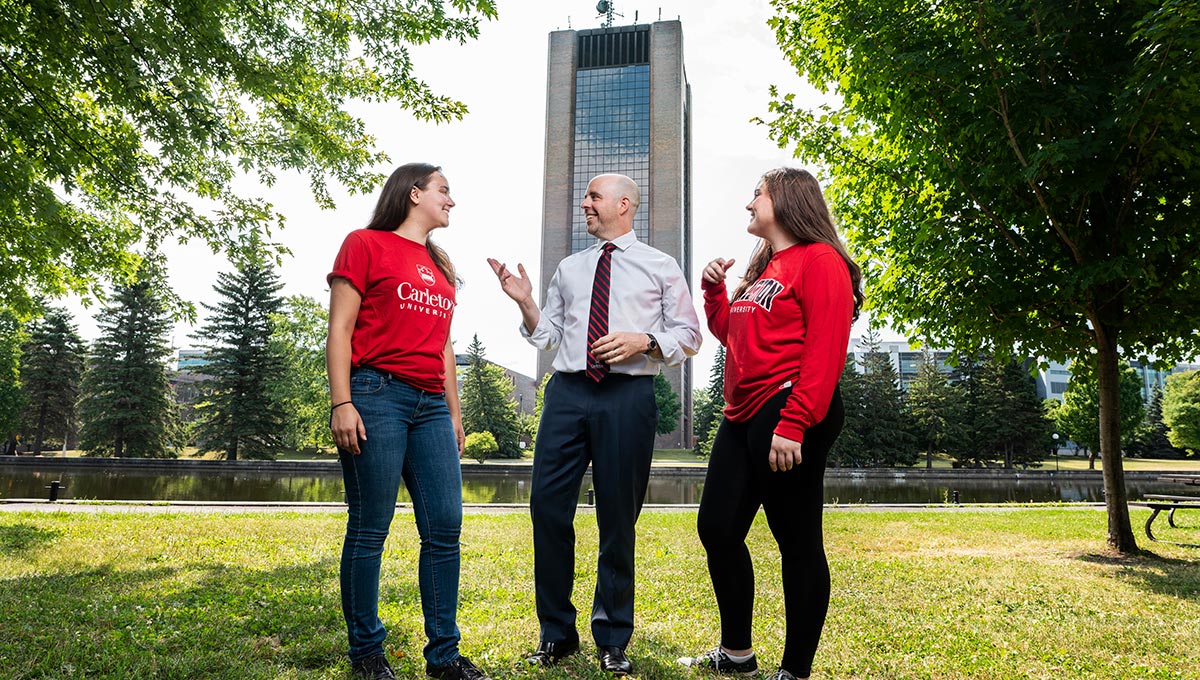
At Carleton, we talk about the university’s “capital advantage” — the distinct benefits of being based in Canada’s capital. What are your thoughts on this idea?
We’re located in a city that matters, both nationally and internationally. There’s not only one way to matter, but to be a national capital is certainly an advantage — to have the federal government right here, to have all the embassies right here, to have all the national organizations, including research organizations, right here. This should be exciting for students, this should be exciting for faculty, and we should always be thinking about how to leverage this advantage. Suppose you’re a university that’s on the seacoast — it would be absurd not to take advantage of the sea, to seriously get into that kind of research. You need to leverage your habitat. Our capital advantage is the ability to leverage all those organizations, all those levels of government, all the institutions that are here — to bring them to campus, reach out to them, partner with them. That’s incredibly powerful for our students and faculty here on campus, and can also help us develop connections and partnerships globally.
We also talk about “Here for Good,” the theme of our fundraising campaign and the university’s mission to contribute to the greater good of society. What are your reflections on this phrase?
There are two intertwined meanings for me in this beautiful little phrase. The people I’ve spoken to so far emphasize what I think of as the second meaning: we’re here to do good, to promote good, to bring our planet closer to heaven in the metaphorical sense, and I think that’s important. Our pursuit of social, economic and the common good speaks to our research impact and involvement with the community, to Carleton being a force for good in Ontario, Canada and beyond. This is excellent. We’re here for purpose, for impact.
There’s another value that I think precedes this: when you say you are here for good, it’s a statement of resilience, it’s a statement about standing your ground. I perceive Carleton as a resilient place. Resiliency is a quality we need to foster in our students. They’re going to face a very uncertain future. If you have resilience, you can successfully face the challenges that come your way. Rather than crush you, they will build your strength, they’ll led you to reason and they’ll lead you to purpose.
That’s what “Here for Good” means to me. Resilience and purpose. And that is so important because it’s the path to gratitude, to meaning and to joy.
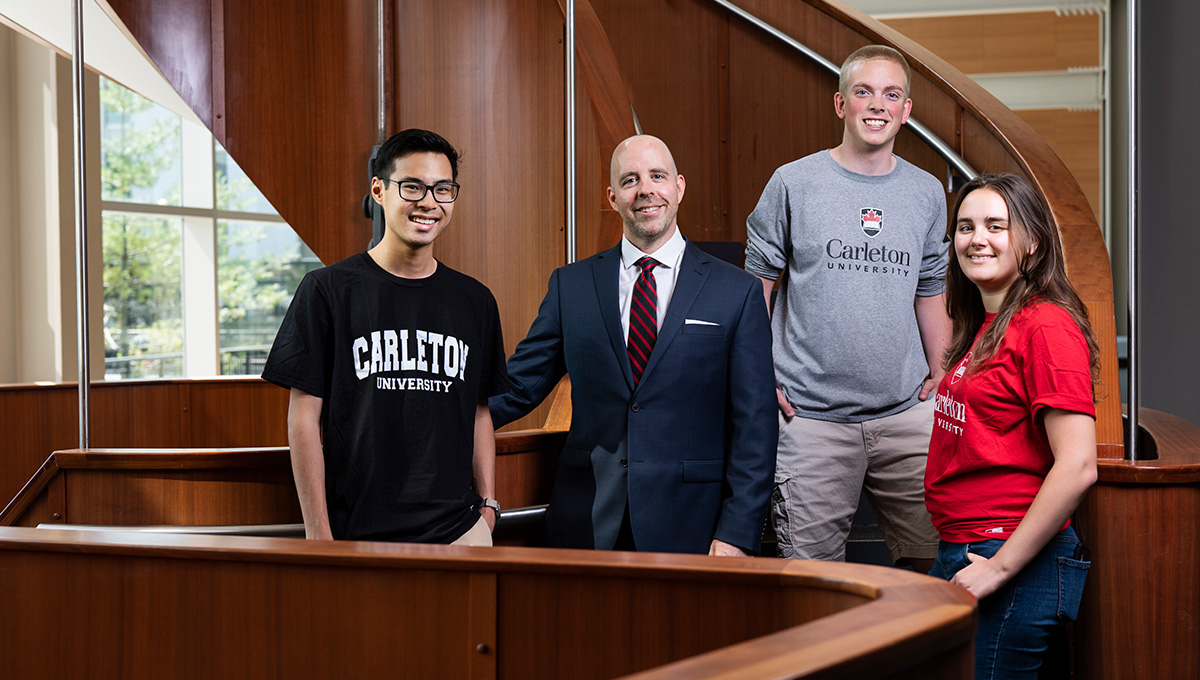
What challenges do you see on the horizon?
Life is hard and there will be always challenges to individuals, to institutions, to societies and now to the planet. This is a stressful time at all these levels. You can see it in the incidence of mental health and addiction issues, in the rising mistrust in institutions, and of course in climate change and the tensions of living together in a global world.
The university can help meet challenges at all these levels and can be part of the solution, but we need to recognize that our sector itself has entered a time of rapid disruption. It will be a very challenging decade ahead. It will require adaptation. People expect more and more from universities and, for a number of reasons, for lack of a better term, the “business models” that have prevailed for 100 years are under threat.
Other industries based on the delivery of content, like we are to a degree, notably the media and the music industry, have faced severe disruption and have only partially adapted. If you had said to a number of media executives back in 1989, “You are under severe threat, there’s something called the internet that’s only five years away,” they would’ve laughed you out of the room. The coming together of technology and globalization changes the landscape: anyone in the world can get course material delivered to them from anywhere in the world. The good news is that this disruption will bring opportunities as well for those that can anticipate, prepare and seize them.
You’ve got to keep your eyes open, see reality as it is and try new things to be able to adapt to new realities before it’s too late.
What — and who — are on your mind as we head toward the fall semester and the new academic year?
I want to thank Alastair Summerlee, who stepped up and took on a challenging one-year interim presidency. He set the table for me in a number of ways and was very generous during the transition. I’d like to thank the members of the hiring committee for their courage in selecting me and for their trust. And I’d like to thank Nik Nanos, the new chair of Carleton’s Board of Governors, for his support and for our partnership — and I’d also like to thank all the people I’ve met so far for their guidance, advice and warm welcome.
I’m grateful to be here and very much looking forward to the fall. I’m using the summer to get ready for all the conversations I’ll be having with people from all corners of the Carleton community, so we don’t have to start from scratch! I want to gather as much information as I can to understand this wonderful place as much as I can. I don’t want to have any preconceived ideas of what needs to be done, so come the fall there will be tremendous opportunity to engage with the community, to meet people, to get ideas and advice and to set the course together towards a shared vision.
